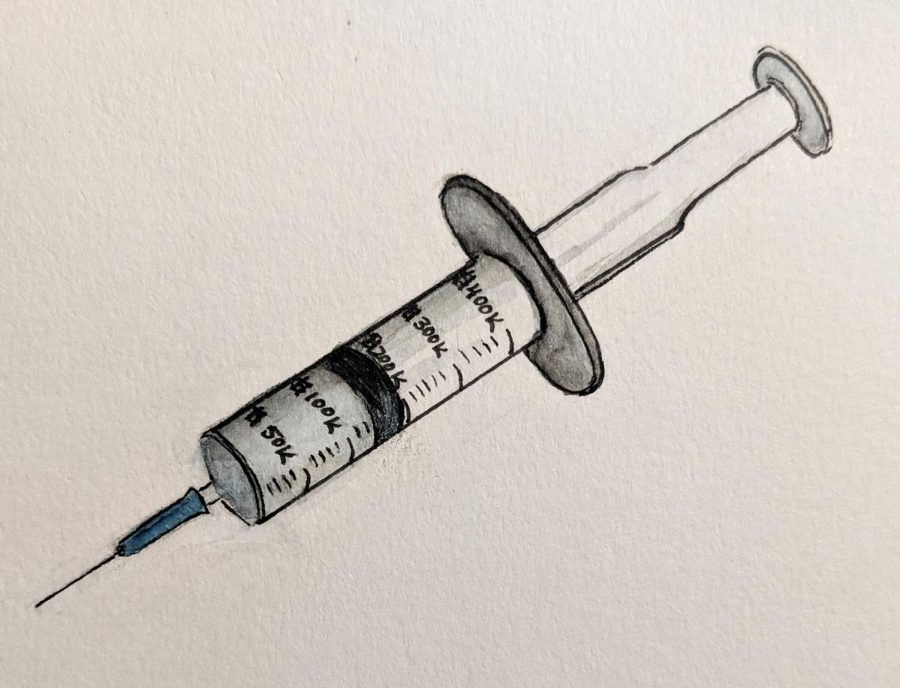NYU: Setting a Precedent for Future Medical Programs
February 16, 2019
At the White Coat Ceremony on August 16, 2018, incoming medical students to the NYU School of Medicine received not only their first white coat, affirming their role as caregivers, but also a major surprise: a tuition waiver [1].
Ranked the third best medical school in the country, the NYU School of Medicine is the only top-ten ranked medical school in the U.S. offering free tuition. Kenneth Langone, whom the medical school is named after and the co-founder of Home Depot, contributed $100 million of the current $450 million designated for tuition waivers to aid graduates with their financial debt. However, to ensure the perpetuity of the program, they need to raise a total of $600 million within the next few years [6].
The intimidating debt that accumulates after medical school can discourage aspiring doctors from pursuing medicine. Around twenty thousand students take out substantial federal loans to support their studies each year. In 2017, the median debt for graduating medical students was $192,000. For NYU, approximately 62% of its graduating medical students leave with debt, and students in the class of 2017 loaned approximately $184,000 [2]. Thus, it will be extremely helpful for NYU to remove the stress of repaying debt.
The Association of American Medical Colleges also projects that the U.S. will experience a shortage of up to 120,000 physicians by 2030, impacting medical attention nationwide [4]. Therefore, by waiving this debt, more people can enter the field of medicine to bolster the workforce and increase patient care. Meghan Jin ’20 believes that “the NYU School of Medicine’s removal of tuition fees will not only benefit the public by increasing medical staff and thereby potentially increasing access to healthcare, but it will also encourage students to pursue medicine, stimulating curiosity in the sciences, working to strengthen both the passion and education of the labor force.”
In addition, medical students already have large amounts of medical material that they need to memorize, and they also have to go through three to fourteen years of training, including residency or fellowship, which pays a relatively small amount of money [6]. In addition, many are starting families while medical students still have 80-hour workweeks, so NYU should reward motivated doctors who sacrifice these opportunities for the medical community.
Furthermore, the debt of medical school may influence medical students to aim for top-paying specialties to pay off their debt faster. For example, orthopedics or plastic surgery pay more than two times the annual salary of a doctor specializing in family medicine and pediatrics [3]. By eliminating this burden, admission officers hope that more students will fill in the niches of the less lucrative fields. Nonetheless, NYU’s goal is not just to produce primary-care physicians; rather, it wants students to have a choice in specializing in areas that they are most interested in.
However, opponents argue that eliminating tuition at a top university will intensify the competition for limited spots in the medical program. This may lead to further stratification as minority and lower-income students enroll in less selective medical programs [5]. While Jason Zhang, class of ’19, believes the benefits are many, he articulates his concern that “this will over time only worsen the socioeconomic and racial divides that plague America, and inevitably lead to the loss of great talent and potential in the field of saving lives.”
Students who can afford the tuition without assistance will also have their tuition covered. However, it is impossible to determine the wealth of the students because even if their parents can afford the tuition, it does not guarantee that they will cover it. Hence, NYU’s tuition waiver should be inclusive, prioritizing the education received by prospective doctors.
As a result, while this new policy may increase the selective competition of medical schools, overall it will encourage more students to pursue a medical degree, increase the number of physicians in the workplace, and reward driven students.
[2]https://www.nytimes.com/2018/08/16/nyregion/nyu-free-tuition-medical-school.html
[4]https://news.aamc.org/press-releases/article/workforce_report_shortage_04112018/
[5]https://nyulocal.com/local-recaps-nyu-med-school-goes-tuition-free-d185788bab98
[6]https://www.marketwatch.com/story/why-nyu-is-making-its-medical-school-tuition-free-2018-10-30

